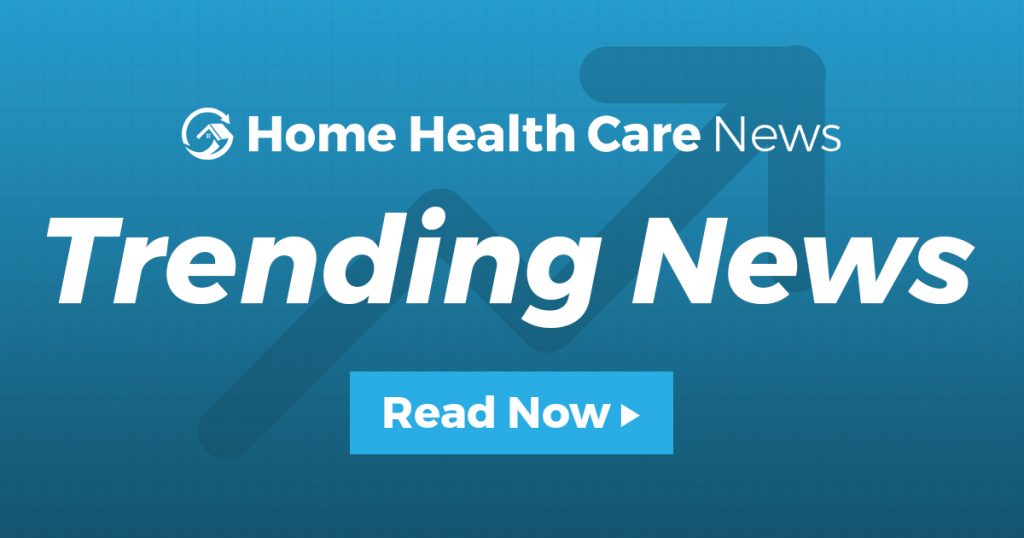
CMS Administrator Chiquita Brooks-LaSure Reemphasizes Home- and Community-Based Services Focus
On Tuesday, the U.S. Centers for Medicare & Medicaid Services (CMS) took the time to map out the federal agency’s strategic plans and key initiatives moving forward.
During the national stakeholder call, CMS Administrator Chiquita Brooks-LaSure, CMS Chief Operating Officer Jon Blum and Deputy Administrator and Director of Center for Medicaid and CHIP Services Dan Tsai, among others, discussed Medicare program compliance, payment innovation and protecting the Medicare program for years to come.
“We really have tried, over the Biden-Harris Administration, to be really clear in saying what our objectives are,” Brooks-LaSure said. “It’s been a little over a year since we unveiled the six pillars, which really were meant to help guide our work.”
One of the ongoing priorities of CMS is expanded access to home- and community-based services — an initiative that began during the height of the COVID-19 pandemic.
Last year, as part of the $1.9 trillion American Rescue Plan, state Medicaid programs received a boost in funding for home- and community-based services. A provision in the COVID-19 relief package raised the federal matching rate for Medicaid home- and community-based services spending by 10 percentage points from April 1 of 2021 through March 31 of 2024.
This time period was extended last month, when the U.S. Department of Health and Human Services (HHS), through CMS, announced that states would have another year to use funding from the American Rescue Plan.
States that have plans to enhance home- and community-based services, using this funding, will now be able to do so until March 31 of 2025.
“The American Rescue Plan has given new opportunities to expand services and access to strengthen [the] home- and community-based service provider workforce — impacting social determinants of health and improving quality,” Brooks-LaSure said. “We’re seeing states across the nation use those dollars in ways to really make sure that people are getting care in the most appropriate settings.”
Aside from expanding access to home- and community-based services, CMS continues to keep its focus on health equity. Within home health and other post-acute care settings, there continues to be gaps in care among different patient populations.
“This has not been an easy time — we all know that,” Brooks-LaSure said. “But I continue to believe that it represents an opportunity for all of us to really drive health equity. By that we mean really ensuring that everyone in this country has a fair and just opportunity to really live their best lives, regardless of the characteristics that might define them when you look at each person, and by where they’re born in this country.”
On the compliance front, CMS is watching telehealth and telemedicine closely during the pandemic. Broadly, the utilization of telehealth and virtual care has been a vital care tool for providers.
Still, CMS is looking to crack down on “bad actors” operating with the telehealth space.
“CPI continues to combat Medicare and Medicaid fraud related to telehealth, telemedicine and COVID-related fraud,” Dara Corrigan, deputy administrator and director of the Center for Program Integrity, said during the call. “Over the past two-plus years, most providers and suppliers have worked tirelessly to react to the COVID-19 pandemic. But some bad actors have used this as an opportunity to take advantage of federal health programs and also to exploit the beneficiaries that we want to protect.”
Additionally, despite the recently announced three-month extension of the public health emergency, CMS is preparing for its eventual end by ensuring that states are prepared. CMS is also working to ensure that beneficiaries maintain coverage.
Plus, the agency is reviewing its Conditions of Participation regulations to promote more resilient health care systems, as well as determining which waivers to maintain, sunset and prepare reassurances for.
“We take every extension of the public health emergency as an opportunity to ensure that we are better prepared, and better equipped, for its eventual end,” Ellen Montz, deputy administrator and director of the Center for Consumer Information and Insurance Oversight, said.